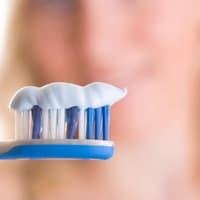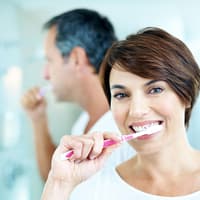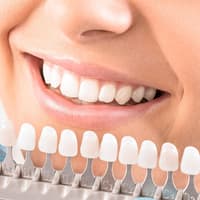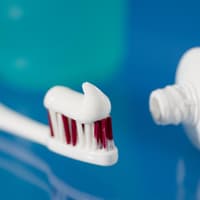
White, yellowish or with a hint of grey - every person has their own individual tooth color. Experts refer to changes in shade as tooth discoloration. They are usually caused by external influences - and you can do something about it.
1. mouthwashes cause brownish plaque on the teeth
Mouthwashes help against plaque - the coating on and between the teeth. However, many rinses contain stannous fluoride or chlorhexidine, and these substances cause brownish discoloration of the teeth. If in doubt, stop using the rinse and brush more thoroughly.
2. soda, iced tea and sweets contain citric acid
Citric acid attacks the tooth enamel and makes the tooth more vulnerable. The acid dissolves calcium and phosphate from the enamel, making the tooth susceptible to discoloration and decay. If you can't resist: Wait half an hour after eating to brush your teeth, then the enamel can stabilize.
3. whitening toothpastes sand down the enamel
Unfortunately, small particles in the paste not only rub off discoloration, but also the enamel. The result: tooth discoloration. If the cleaning effect of a toothpaste is too weak, this can also cause discoloration.
4. tablets for iron deficiency discolor the light enamel
Iron reacts with the bacteria in the mouth to form black iron sulphide. Dissolved effervescent tablets should be drunk with a straw. By the way: Professional teeth cleaning helps with all tooth discoloration






